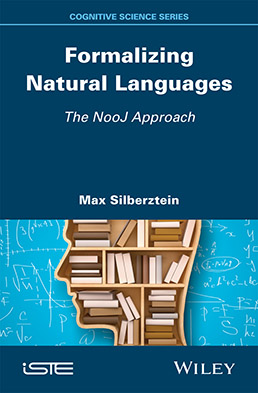
This book is at the very heart of linguistics. It provides the theoretical and methodological framework needed to create a successful linguistic project.
Potential applications of descriptive linguistics include spell-checkers, intelligent search engines, information extractors and annotators, automatic summary producers, automatic translators, and more. These applications have considerable economic potential, and it is therefore important for linguists to make use of these technologies and to be able to contribute to them.
The author provides linguists with tools to help them formalize natural languages and aid in the building of software able to automatically process texts written in natural language (Natural Language Processing, or NLP).
Computers are a vital tool for this, as characterizing a phenomenon using mathematical rules leads to its formalization. NooJ – a linguistic development environment software developed by the author – is described and practically applied to examples of NLP.
1. Introduction: the Project.
2. Formalizing the Alphabet.
3. Defining Vocabulary.
4. Electronic Dictionaries.
5. Languages, Grammars, and Machines.
6. Regular Grammars.
7. Context-Free Grammars.
8. Context-Sensitive Grammars.
9. Unrestricted Grammars.
10. Text Annotation Structure.
11. Lexical Analysis.
12. Syntactic Analysis.
13. Transformational Analysis.
Max Silberztein is President of the International NooJ Association. His research focuses on computational linguistics and language formalization.